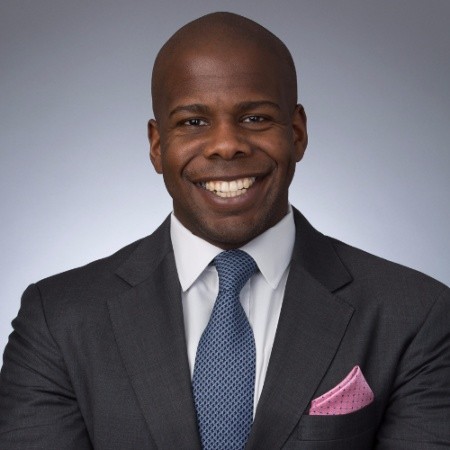Archive for 2021
Crypto Fans Want to Buy The Constitution of the United States and They Might Actually Succeed
November 15, 2021
It’s the ultimate NFT, the Constitution of the United States. On November 18th, Sotheby’s will auction off one of the only thirteen surviving copies of the United States Constitution, an opportunity the public hasn’t had since 1988.
But a private collector hoping to pocket the national treasure will have some competition, the crypto mob on twitter. On November 11th, at least two individuals launched @ConstitutionDAO, a twitter account dedicated to crowdfunding crypto with the intent of raising enough money to be the winning bid.
The buyer would technically be a DAO, a Decentralized Autonomous Organization, a community-led entity with no central authority that is governed by a smart contract.
It’s predicted that if the DAO can raise significant cash before the auction that Sotheby’s will allow it to place legitimate bids. Sotheby’s put the estimated winning bid price at $15 million – $20 million.
It might not be out of reach, the DAO raised nearly $2 million in just the few hours since it began crowdfunding the money through a platform called juicebox.
If the DAO wins, theoretically “ownership” of the constitution would be fractionalized into shares based upon each member’s contribution. With a DAO, no one need even disclose who they are. Only a crypto address is required.
We have coordinated a DAO to acquire The Constitution of the United States.
I give you: @ConstitutionDAO
Ping me if interested in being a part of a monumental moment. https://t.co/VHkCTrq4fa
— Austin Cain (📜,📜) (@j_austincain) November 12, 2021
Members contributing to the pool of funds have the option of including a public message.
“To secure the blessings of liberty”
“Another first generation immigrant hoping to be the proud owner of the US constitution.”
“American Dream!!!”
“cant wait to explain this at Thanksgiving”
“in satoshi we trust”
The official website of the ConstitutionDAO is here.
For the sake of following the success or failure of this project accurately, deBanked contributed a very small amount to the DAO so that it could participate in the possible ownership and community of the Constitution. Weird, I know.
Mortgage Fintech CEO says Brokers are Still Relevant to Lending Process
November 12, 2021
At Money 20/20 last month, deBanked spoke with Jason Harris, CEO of Button Finance, about his company’s initiative to give access to home equity loans to borrowers that would have never been able to do so. Through this conversation, Harris also shared his thoughts on how brokers across the finance world are still relevant, and the ones who are embracing tech are the ones who are closing deals.
Button Finance is a fintech company that brings together venture and hedge fund capital with borrowers seeking lines of home equity credit. After moving into second-lien mortgages, Button Finance is looking to open up a practice which according to Harris, is mostly an exclusive borrowing process for high net worth clients who borrow from large institutions.
“The reason we like this product is because if you’re an individual, you have to go somewhere like LendingClub or to your credit card to borrow money. And those are interest rates at 20%, as high as 30%, even if you have great credit, it can be over 10%. So we want to give people a much lower cost for access to credit.”
Harris also has a desire to make the process as quick and efficient as technology allows. He is embracing not only expanding the access to capital, but making the process to obtain it simple.
“We want to make it so you can borrow money sitting on the toilet on your phone,” Harris said.
When speaking about brokers in his industry, Harris touched on how the ones who are innovating are taking advantage of such a unique time, where the amount individuals innovating are relatively low, and the opportunities given by the innovation have never been higher.
While some companies offer a completely broker-less buying process, Harris thinks the role of a broker is necessary for a borrower of any loan to be comfortable and informed during the borrowing process.
“Now with regards to the need for brokers, this is something that now happens very often,” said Harris. “When people make large purchases, they like the comfort of speaking to someone and having someone advise them. Sometimes a broker can offer you some educational knowledge. We’re in the finance world; if you’re not a finance person at all, before you borrow $500,000, you might want someone advising you along the way.”
“Different brokers have different ways of brokering,” said Harris. “Some brokers spend money and build out great technology platforms themselves, and they’re able to scale and do ten times as many mortgages as a broker who is doing high touch [business]. Other brokers will use relationship based lending and have high touch [business]. I think it’s definitely going more towards the technology route.”
While embracing the value tech has, Harris realizes that with all this technology comes a responsibility to educate borrowers on all the different processes that are changing when it comes to data transfer, verification, and approval processes. “Like every other tech company, we want to try to bring technology to this as much as possible. We want to be able to advise a borrower on the best possible product just using technology.”
While speaking specifically about the innovation the financial world is experiencing, Harris thinks that a drastic change to the finance world will be take place over a long period of time.
“Like everything, things move slowly,” said Harris. “Don’t think this will happen overnight.”
Marcus By Goldman Sachs Will Become Goldman Sachs Marcus
November 12, 2021 Brace yourself for the craziest rebrand in fintech history.
Brace yourself for the craziest rebrand in fintech history.
Just kidding.
Marcus by Goldman Sachs is changing its name to Goldman Sachs Marcus.
:::Mind Blown:::
The news, publicized by Forbes, said that the bank now feels more confident in leading the division with its own name first after initially applying caution.
Goldman found that their customers had a strong brand affinity with the name ‘Goldman Sachs’ and wanted to “be closer to the brand,” said Stephanie Cohen, Goldman’s Global Co-Head of Consumer and Wealth Management.
The full scoop can be read at Forbes.
Wing Lake Capital Announces New Capstone Fund
November 12, 2021 After acquiring Franklin Capital in October of last year, Wing Lake Capital CEO Shaya Baum spoke to deBanked about a new fund the company is unveiling, the Capstone Fund.
After acquiring Franklin Capital in October of last year, Wing Lake Capital CEO Shaya Baum spoke to deBanked about a new fund the company is unveiling, the Capstone Fund.
A mix of debt and equity has put $50 million into the Capstone Fund, all from investors of the Franklin Fund. According to Baum, the Franklin Fund still has about $100 million in it.
“Wing Lake Capital has two funds now,” said Baum. “There’s the Franklin Fund and the Capstone Fund. The Franklin Fund was launched as a bridge for companies that are stuck in the cash advance merry-go-round. Companies are stacking cash advances until they are using Peter to pay Paul, and then there are no more Peters.”
Comparing the Franklin Fund to the Capstone Fund, Baum described it as a “graduate fund” that will enable companies with too many advances to move beyond them and that it would serve as a stepping stone between the Franklin Fund and traditional SBA or bank financing.
Additionally, the Capstone Fund is also a place where companies who have extenuating reasons why they’re denied credit, but aren’t in distressed business situations, can get access to capital.
Baum’s business model is sometimes at odds with the advance providers his companies try to draw customers away from, with Baum going so far as to say that some of these providers “hate” him. Despite this, he says that some quietly work with him.
“These companies say one thing publicly and privately do another,” said Baum. “These companies that come to us for help are companies that can no longer pay their cash advance debt.”
As part of his company’s program, the advance provider can recover some of its money, he asserted.
“We’re getting 800 deals a week from cash advance companies saying ‘hey, can you help us get out of these?’”
Regardless of the tension with competitors, Baum believes the new fund will ultimately benefit the merchants.
“The Capstone Fund is really focused on growth capital as opposed to restructuring distressed assets. Okay, we’ve restructured your business, you don’t have to pay that cost of capital, you have to focus only on growth. You have opportunities to grow, room for success, now let’s scale the business.”
The Crazy Lawsuit Against Marcus Lemonis Was Dismissed
November 11, 2021The supposed bombshell lawsuit filed by Nicolas Goureau, Stephanie Menkin, and ML Fashion against Marcus Lemonis has been dismissed. Despite the sensational allegations that enabled Forbes to pen a major story, the Court found the entire lawsuit defective and dismissed it altogether on October 15.
The plaintiffs have advised the Court that they intend to try again by filing a second amended complaint. That would in fact make it their third attempt to try even getting past the opening stage of litigation.
The dismissed lawsuit had been packaged up to make headlines, opening with a monologue about it being the culmination of an “eight-month investigation” carried out with the help of a “former district attorney and a top law school professor, and a world renown psychiatrist that was spurred by the coming forward of no less than seventy (70) family businesses that have been destroyed…”
Despite all this, the judge ordered the suit “dismissed in its entirety.”
Blockchain Expert says Crypto Tools will Revolutionize Lending
November 11, 2021 Blockchain technology can seem complex, but many individuals operating companies that utilize the technology are planning for their world to collide with mainstream finance very soon. Mark Shekleton, CEO of Smart Seal, a company that provides digital identifications for physical goods, believes that those in fintech and small business lending will utilize the technology that blockchains offer on a daily basis in the near future. The technology that will be most useful according to Shekleton, is a type of token he refers to as an (non-transferable token) NTT.
Blockchain technology can seem complex, but many individuals operating companies that utilize the technology are planning for their world to collide with mainstream finance very soon. Mark Shekleton, CEO of Smart Seal, a company that provides digital identifications for physical goods, believes that those in fintech and small business lending will utilize the technology that blockchains offer on a daily basis in the near future. The technology that will be most useful according to Shekleton, is a type of token he refers to as an (non-transferable token) NTT.
“When I’m talking about NTTs, I’m talking about a token that is like an NFT, but it can’t be transferred. It’s issued against a wallet and it can be revoked from that wallet by the issuer,” said Shekleton.
“By issuing NTTs, you allow [merchants] operating in the crypto space to gain reputation and credit for the activity they do under that wallet. So if I am operating a business, and I’m using a crypto wallet to operate, and I borrow some money, and I pay it back, the lender can issue me a positive credit report; a positive token. A token that symbolizes a positive [payment history].”
This token, issued as a one-way NFT, would be a permanent record on an objective platform that could be referenced by anyone who is looking to view the credit history of a specific merchant.
“If I go to another lender [as a merchant], they can look at all of these NTTs that are issued against my wallet and they can say ‘hey look, we saw this other lender issue one of these tokens’, [thus] you paid back your loan, and have this positive piece of reputation associated with your wallet.”
“As you go, the level of trust around a certain wallet increases. If you operate your business, and you can demonstrate that you are trustworthy, and you have people who are issuing these tokens in your wallet, you can prove to anyone else that you are a trustworthy business.”
Shekleton expanded his ideas of potential uses for blockchain technology into identity verification as well. He explained how the same process used for credit history for merchants can be used for individuals or businesses when trying to prove who they are virtually.
“Companies or banks that have services where they’re verifying the identifying of online customers, there’s a really good opportunity here for (Know Your Customer) KYC companies to issue identity tokens,” said Shekleton.
“Say I have a wallet. And right now I created a new wallet, it’s completely anonymous, I’ve never associated my identity with it. But I want to use that wallet to borrow money. I want to make sure there’s no money laundering, the lender needs to know my identity. I go to a KYC issuer, I upload my ID, meet all my requirements to verify my ID, and I sign with the wallet to prove that I’m the holder of this wallet. Then, they issue an identity token, and I can’t transfer that token to anyone else’s wallet, it can only stay in my wallet.”
According to Shekleton, an NTT’s ability to be revoked by the issuer makes it a great way to counteract fraud or identity theft, as the authenticity of the token can be revoked at any time, making the token visibly unusable to all who attempt to use it fraudulently. When asked why this idea hasn’t caught on, and why he referred to NTTs as “not talked about, and complex” at NFT.NYC last week, he blamed the infancy of NFTs and how NTTs are just too new to be widespread.
“The technology itself is just in its infancy. I think there’s a huge opportunity here, virtually untapped, but it’s still very young so it’s going to be a couple of years before anyone realizes the gains of this tech if you start building it now. I think when you start talking about NFTs as utilities to fintech and lending companies, I just don’t think they are awake to that yet. They haven’t started building.”
Lender is Providing $5K Incentive to Veteran-Owned Businesses
November 10, 2021 In an effort to promote veteran entrepreneurship, Fountainhead, the nation’s leading SBA 7(a) and 504 non-bank lender, is providing funds to veterans to assist them with closing costs of the deal should they pursue funding through the company.
In an effort to promote veteran entrepreneurship, Fountainhead, the nation’s leading SBA 7(a) and 504 non-bank lender, is providing funds to veterans to assist them with closing costs of the deal should they pursue funding through the company.
Fountainhead’s CEO Chris Hurn spoke exclusively to deBanked Wednesday about what Veterans Day means to him, his business, and how giving this group a break on the cost of capital is not just a marketing ploy, but a genuine attempt to give back to an underserved and under-recognized community.
“We have always been very supportive of veterans getting into entrepreneurship,” said Hurn. “[The promotion] is basically us gifting $5,000 on a transaction if they close with us.”
“Oftentimes, that’ll be enough to cover a real estate appraisal, enough to cover the environmental reports, it may be able to cover some of the credit reports, different things like that. We do put a cap on it, we are still a for-profit enterprise, but we are covering up to $5,000 of the closing costs.”
As a lender with more than two decades of experience, Hurn believes that veterans are some of the most trustworthy and reliable business owners to do business with. “Some lenders feel like veterans don’t have business experience, I disagree with that,” he said. “I think the military teaches people to be very organized, very disciplined, which are two critical pieces for entrepreneurship.”
From the lender’s perspective, Hurn believes that it is not only good business practices that military experience can provide, but honesty and creditworthiness when it comes to paying back a loan.
“Veteran business owners tend to be extremely organized, extremely disciplined in terms of operating the business. I’m not saying [non-veteran] business owners don’t have aspects of that, but I think the military does a tremendous job on teaching those character traits, which as a lender I find very helpful to make sure I’m getting repaid.”
According to Hurn, about a fifth of his clients are veterans, and he is hoping to increase that number with this promotion.
“[Veterans] are a very good credit risk, we want to encourage them to get into entrepreneurship, and I think it’s the right thing for the business community to do all they can to help veterans.”
Wall Street Banker Turned Fintech CEO Builds Two-in-One App For Underserved Communities
November 10, 2021 Andrew Glaze, CEO of Wealthstack, shared his thoughts with deBanked on the role fintech is playing in bringing innovation to minority communities. While actively working in the financial world and spreading awareness about the diversity issues in the field, Glaze hopes to share his story so that those in similar situations as he was know that there is a chance to achieve profound financial literacy.
Andrew Glaze, CEO of Wealthstack, shared his thoughts with deBanked on the role fintech is playing in bringing innovation to minority communities. While actively working in the financial world and spreading awareness about the diversity issues in the field, Glaze hopes to share his story so that those in similar situations as he was know that there is a chance to achieve profound financial literacy.
According to Glaze, Wealthstack is mainly a digital investment platform designed to teach diverse and underserved communities how to invest. These communities include African American, Hispanic, Asian, and veterans.
As a Jamaican immigrant, Glaze went from sleeping in a two bedroom apartment with twelve people as a child, to climbing through the financial world. According to him, he now manages over a billion dollars of capital between all of his financial endeavors.
“In Bed Stuy, I saw a lot of impoverished, poor, good and noble people who would never have the opportunity to create wealth for themselves,” said Glaze, when asked about what Wealthstack was all about. “So I created a platform that allows me to leverage my expertise and experience, and recognize the training tools within it. There’s a number of training platforms out there and there’s a few educational platforms out there, this is both.”
As a West Point and Columbia Business School graduate, he made his way through Wall Street as a banker and then a hedge fund manager. He now wants to use his adversity ridden story to provide an opportunity for those that grew up in the similar conditions he did, putting together an effort to provide a fair chance for the underserved at being financially successful.
Wealthstack users will get the education and real world practicality out of the mobile app, and they will soon be able to invest directly on the platform after they learn about what each type of investment is.
“We do a series of two to four minute videos that cover everything from the very basics of what is a credit score is, all the way up to how to value businesses based on cash flow. There’s over one hundred videos on the platform today, each video features diverse actors, so you’re able to see people that look like you.”
When asked about the biggest issue facing underserved communities, Glaze discussed access to capital as one of the things that over time, has not caught up with other bias practices being weeded out.
“I’m in a unique position as an African American veteran immigrant, and also senior financial professional, who serves on boards. I’m evaluating $500 million loans for $2 billion businesses that I’m on the board of, but then also going out and personally applying for credit at different points of time. I am very familiar with the challenges that are faced due to inherent bias.”
Although Glaze said that things changed a lot over the past hundred years when it comes to underserved communities having wealth, he thinks lending is lagging behind. “I will tell you that that same spirit of resentment against offering capital to people that don’t look like you certainly is alive and well today. And it manifests in a number of different ways.”





























